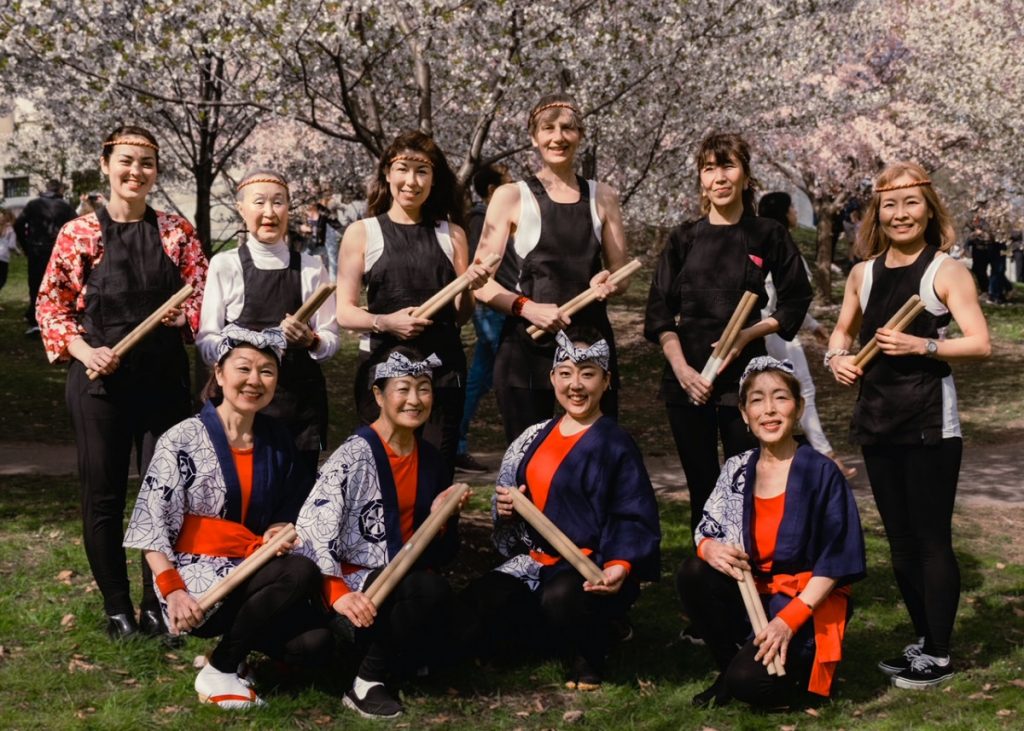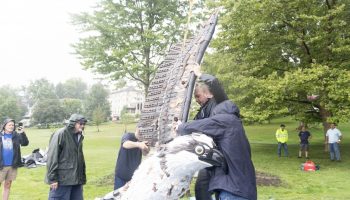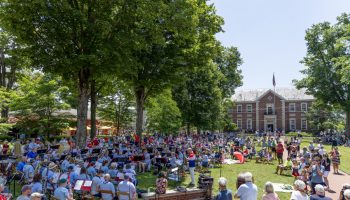In a true only-in-Chautauqua experience, the Buffalo Silver Band, a 107-year-old British-style brass band, combines talent and sound with the JGB Shibuki Taiko ensemble, a Japanese drum group, for a program titled “East Meets West.”
At 2:30 p.m. Sunday, July 3, in the Amphitheater, these two groups merge for the second time, and for the first at Chautauqua. This one-of-a-kind grouping first performed together in 2021, but have known of one another for longer.

“Essentially, this all started about three years ago,” said Bill Cocca, the director of the Buffalo Silver Band. “In 2019, I heard Shibuki perform in the Buffalo Cherry Blossom Festival and contacted them, and we worked for all the better part of the year to find a place in our schedules to work together.”
While Buffalo Silver Band is returning to the Amp, this will be Shibuki’s debut. This performance will include a wide range of music from marches and American jazz to traditional Japanese taiko drumming.
“We are closing with a composition titled ‘Horizons,’ which I wanted to close with given the nature of our performance of ‘East Meets West,’ ” Cocca said. “I think ‘Horizons’ encapsulates the British brass band sound.”
Cocca hopes that Chautauquans realize with this performance that these two groups are more alike than different.

“What was alluring, I think for both of us, was that there are some stark differences in what we do, but more so there are some wonderful similarities in what we do. … Both groups share a sense of community,” Cocca said.
Jennifer Leising, drummer and media manager for JGB Shibuki, finds the combined sounds of the two groups to be unique.
“It is rewarding to hear the sounds of taiko alongside the powerful brass instruments to create an enveloping, deeper sound experience for the audience than we normally would be able to on our own,” Leising said
This collaboration has allowed both groups to adapt and grow, Leising said.
“The opportunity to collaborate with an established, accomplished set of musicians in the Buffalo Silver Band has challenged and rewarded our group with a very unique opportunity,” Leising said.
While both groups perform differently, Cocca said that they share a precedent of tradition.
“With performance style, Shibuki are very visually oriented. They’re exciting to watch. We have a pretty much traditional British-American approach to performance, and we pretty much sit there and make some music,” Cocca said. “The traditional songs that each group makes, they’re working on many centuries worth of taiko history, and we’re working on about 150 years (of) brass band history.”
Leising believes one of the major differences between the groups is how they learn music.
“One major difference in learning styles is that our group learns rhythms by way of kuchi shōga, which phoneticizes — that is, phonetically articulates — drum strokes using Japanese sound symbolism,” Leising said.
Both groups are composed of amateur and semi-professional players. Cocca said that they want to make music and hope to entertain the audience.
“We wanted to get together to show that as different as we look, we are very much the same,” he said.
Cocca believes that music can transcend differences and cultures.
“I’ve believed that most of my life music is universal. When you think about it, the expressions and emotions that come through, … it transcends language,” he said.




